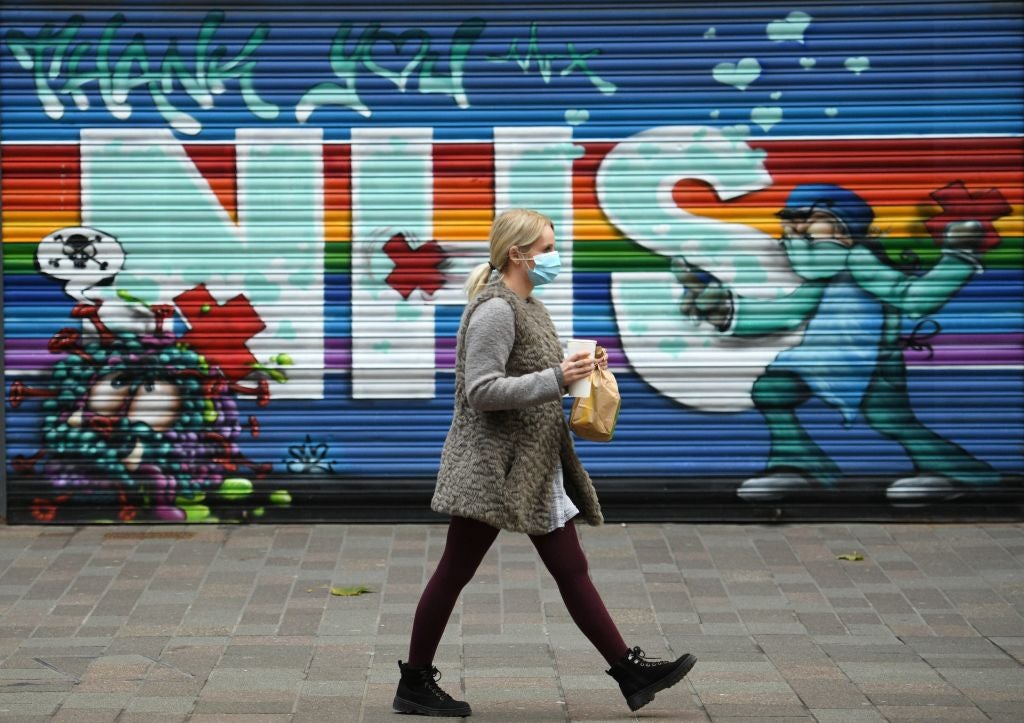The UK has benefited from recruitment of foreign medical staff for far too long
The UK must wean itself off employing medical staff from much poorer countries, writes Mary Dejevsky


Earlier this week, the former international development secretary, Andrew Mitchell, introduced into the House of Commons a novel Ten Minute Rule Bill – his first, as he said, in his 33 years as an MP. What he wants is a law that would require the UK to pay for the training of two doctors or nurses in developing countries for every one recruited from those countries by the NHS.
His proposal should not be seen in isolation; there is a wider context with several strands. One is the recent reintegration of his old department into the Foreign Office, which prompted much vocal opposition when it was first mooted, as signalling a demotion for development.
Another is the likelihood that the aid budget could be one of the pots raided by the chancellor to help offset the massive cost of the coronavirus pandemic. Mitchell’s intervention might reflect an acceptance that the UK’s commitment to its 0.7 per cent of GDP aid contribution may be reduced, while offering something to limit the damage.
And a third strand, of course, is the pandemic. Many of those working on the medical “front line” – whether in the NHS or in care homes – are from ethnic minority backgrounds. Many others came to work here after training abroad. Boris Johnson went out of his way to note that two of the nurses who had helped to save his life when he was in hospital with the coronavirus had come from overseas – which had its embarrassing aspect, given his government’s efforts to limit the number of foreign, including medical, staff allowed to work in the UK.
But it is not just about immigration. When medical workers come, ready-trained, from less developed countries, there is a serious ethical issue, too. Introducing his bill, Mitchell noted that in Manchester alone there were more doctors from Sierra Leone than in Sierra Leone itself, where they had been trained. “What I am describing – the export to us of their doctors and clinicians – is reverse aid,” he said, “not from Britain to help developing countries, but from those developing countries to help Britain; and it is clearly wrong.”
By effectively replacing the medics who come to the UK from developing countries twice over, he said, we could make it a “win-win” situation. Indeed it could be – but only up to a point.
Because the nub of the issue is surely that the UK has benefitted from recruitment of foreign medical staff for far too long, and especially from the import of staff who have been expensively trained in countries much poorer than our own. Mitchell acknowledged this, when he said that the first solution had to be to “grow more doctors and nurses here in the UK”, and commended a recent increase in doctors’s training places. The scale, the numbers, and the sheer ambition, however, leave a huge amount to be desired.
I cannot recall how long I have been reading and writing about the UK’s failure to train its own medical staff, from carers through nurses up to specialist consultants, but it is decades. For all that time, the UK has been a parasite, and a hypocritical one at that. Woe is us, government ministers and NHS managers lament, we have thousands upon thousands of vacancies; we just can’t get the staff, so we will take them, nice and cheaply, from somewhere else.
It is true that, in part thanks to the efforts of Jeremy Hunt when he was health secretary, five new medical schools are in the pipeline – which is something – and Aston University now has a foundation course for disadvantaged students wanting to study medicine. But the increase in medical school places that Andrew Mitchell was referring to was from 6,000 a year to 7,100; that is an increase of roughly 20 per cent. Doesn’t this suggest a pathetic timidity of ambition?
The pandemic has shown both what can be done – and what hasn’t been done. When the alarms first sounded, the army was brought in to build the instant “Nightingale” hospitals and temporary mortuaries, almost all of which – mercifully – were not used. It is unfair to decry these efforts as a waste; they provided valuable reassurance at the time. But now, it turns out, with the “second wave” upon us and the country being urged once again to “protect the NHS” that the “Nightingale” hospitals are unlikely to be revived because – why do you think? – there are nowhere near enough trained staff.
Now, I know that the government has had quite enough to do. But why could the respite from May not have been used to renew the initial call for volunteers and provide accelerated medical training, allowing specialist staff to be released for acute care. Why, with millions on government-funded “furlough” and long-term unemployment looming, could a call not already have been put out for those interested in retraining, and the offer of a fast-tracked medical course that could be used as a future credit towards some form of health or medical qualification? Why not start now to try to fill all those gaps?
Although Hunt’s reforms are supposed to ensure that “after 2025 the UK will have enough medical graduates to support the NHS in a sustainable and predictable manner” (whatever that means), many of the figures from the 2019 General Medical Council workforce report hardly inspire confidence that we are moving in the right direction. In 2019, it states, “for the first time, more non-UK medical graduates took up a licence to practise than UK medical graduates”.
And we are not weaning ourselves off foreign-trained medics. A 10 per cent decline between 2012 and 2016 was followed by “a complete reversal between 2016 and 2019, when there was an increase of 16 per cent”. This would not even seem to be a particularly sound investment. While 30 per cent of UK medical graduates leave permanently to go abroad – not good – almost twice that proportion of foreign-trained doctors leave in their 30s and 40s.
Retention, however, is far from the only reason why we should make a much greater effort, as Mitchell put it, to “grow our own”. One overwhelming reason should be that language competence and the standard of qualifications can be assumed, with no need for extra testing. There has long seemed to be something of a closed shop in UK medical training, with the number of places kept artificially low; why not widen recruitment?
Another reason – and I hesitate to mention this – might be cultural. If it is deemed so important that police reflect the communities they serve, how about medics? A study, based on 46 hospitals in England and published in the BMJ Open in 2015, found that “importing nurses from abroad to substitute for domestically-educated nurses may negatively impact quality of care”. I have seen no follow-up either to confirm or challenge those findings, but would it be completely surprising if patients in a UK hospital were more at ease with a quorum of staff who had been trained in the UK?
This week, along with Andrew Mitchell’s suggestion for repaying something to the much poorer countries who help staff our health system, we have learned of the astonishing sums paid to PPE purveyors at the height of the global shortage; the £12bn bill for a possibly defective “track and trace” system, and now a £16bn boost for the armed forces.
It would take a lot less to introduce some accelerated basic training for new health workers and double the number of UK medical students. Not growing our own might then be seen for what it is: both a false economy and theft from those countries that can least afford the loss.






Join our commenting forum
Join thought-provoking conversations, follow other Independent readers and see their replies
Comments